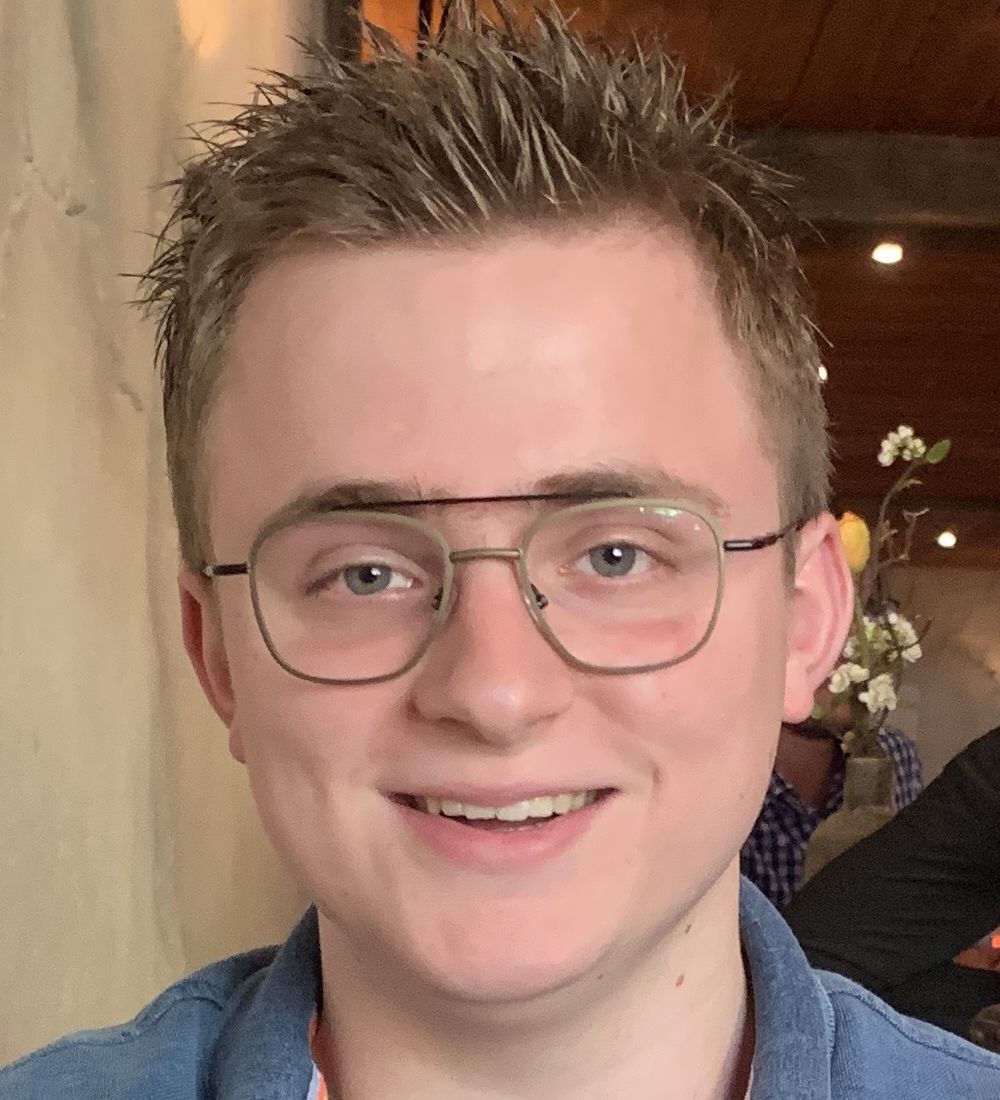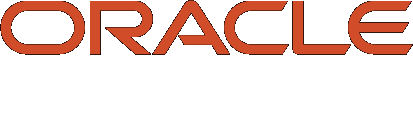
Jordi van Laarhoven
MSc
Software Engineer
Software Engineer
Jordi van Laarhoven, MSc
Reliable and motivated developer with over 6 years of experience as programmer, with a specialisation in Formal System Analysis. I am a disciplined developer with a great attention to detail that always aims for the most optimal end result. I enjoy working closely with others and have been recognised for my dedication as team player and for my excellent communication skills.
Curriculum Vitae
Over 6 Years of Programming Experience
Personal Data
| Name | J.E.P.M. (Jordi) van Laarhoven |
| Born | Goirle, March 31, 1999 |
| linkedin.com/in/jordi-van-laarhoven/ |
Education
Sep 2021 - Dec 2023
Eindhoven University of TechnologyMaster Computer Science and Engineering
Specialisation in the field of Formal System Analysis and Software Engineering & Technology
Sep 2017 - Apr 2021
Eindhoven University of TechnologyBachelor Computer Science and Engineering
Specialisation in Security and Analysis of Information Systems
Sep 2011 - July 2017
Koning Willem II CollegeAtheneum (VWO)
Pre-university education
Experience
Dec 2022 - Dec 2023
Canon Production PrintingMaster Graduation Project
Graduation project for my master Computer Science & Engineering at Eindhoven University of Technology. During my master graduation assignment I formally defined and analysed the State Machine Modelling Tool (SMMT) that has been developped at Canon Production Printing to generate executable code from state machines. Using the mCRL2 model checking we have analysed the tool and existing models. My gradiation report can be found on this website: Graduation Report
Apr 2020 - July 2020
DrieamSoftware Engineering Project: DocuGen
Graduation project for my bachelor Computer Science & Engineering at Eindhoven University of Technology. Together with a group of students, we designed and implemented a LTI for Canvas to automatically generate PDF documents.
Volunteer Experience
Jan 2019 - Current
Koninklijke Harmonie Oefening & Uitspanning GoirleBoard Member - Volunteer
I am a board member of Koninklijke Harmonie Oefening & Uitspanning Goirle. In addition to that, I perform the following tasks:
- Active member of the Percussion Ensemble / Malletband committee;
- Active member of the Sponsor committee;
- Management of the administration system and website;
- Data Protection Officer (DPO) (GDPR).
Aug 2021 - Current
Plan C GoirleSupport Website
Creating a simple website for Plan C Goirle and providing support when necessary. Plan C Goirle is an organization that makes cultural education accessible for everyone in the municipality of Goirle.
Contact
| Phone | +316 2467 1258 |
| algemeen@jordivanlaarhoven.nl | |
| Address | Goirle, North-Brabant |
| The Netherlands | |
Coding Skills
JAVA
Python
SQL
PHP
HTML/CSS
C
Other Skills
Scrum
GIT
LaTeX
Languages
Dutch
English
German
Certificates

Database Design

Programming with SQL
Followed Courses
Master Computer Science & Engineering
Eindhoven University of Technology
Dec 2022 - Dec 2023
2IMC00 / 2IMC05Master Thesis
Graduation project at Canon Production Printing (Venlo, The Netherlands).
Nov 2022 - Jan 2023
2IMF00Seminar Formal System Analysis
Dr.ir. T.A.C. Willemse (Course Coordination)
Prof.dr.ir. J.F. Groote (Supervisor Research Project)
Winning Strategies in Quoridor: An analysis of the strategy game Quoridor. During this research project I investigated whether winning strategies exist in Quoridor. Using model checking, small instances of the game have been analyzed. We have strongly solved Quoridor for smaller instances of the game: The starting player has a winning strategy on a square board of even size and the opponent has a winning strategy on square boards of odd size.
- Quoridor
- Strongly Solved
- mCRL2
- Model Checking
- Formal Verification
Sep 2022 - Nov 2022
2IMF30System Validation
Prof.dr.ir. J.F. Groote
Applying formal techniques to improve the quality of software in (communicating) systems. The aim of the course is to learn how the behavior of systems can be modelled and how their behavior can be verified, using the mCRL2 Toolset and Language.
- mCRL2
- Axioms
- Abstract Data Types
- Process Equivalences
- Modal Mu-Calculus (with Data)
- Formal Proof Systems
- (Transformations to) Linear Processes
- Confluence (Reduction)
Apr 2022 - July 2022
2IMF10Process Algebra
Dr. S.P. Luttik
The course on Process algebra addresses the theoretical foundations of behavioural specification formalisms.
- Semantic Models of Behaviour
- Sequential Composition
- Parallel Composition
- Abstraction
- Recursion
- Structural Operational Semantics
- Behavioural Equivalences
- Congruence
- Equational Process Theories
- Soundness
- Completeness
- Elimination Theorem
- Fairness
Feb 2022 - Apr 2022
2IMF15Proving with Computer Assistence
Prof.dr. J.H. Geuvers
Proving with Computer Assistence addresses theorem provers ("proof assistants"). The course addresses how these theorem provers can be used to formalize programs to verify their correctness and discusses the type systems, both from the view of (functional) programming and logic, that form the theoretical basis for proof assistants like Coq.
- Theorem Provers
- Proof Assistants
- Coq
- Type Theory
- Dependent Type Theory
- Polymorphic Types
- Inductive Types
- Dependent Inductive Types
- Church-Rosser
- Normalization
Nov 2021 - Feb 2022
2IMF35Algorithms for Model Checking
Dr.ir. T.A.C. Willemse
The course Algorithms for Model Checking addresses the mu-calculus, CTL* and some of its subsets such as LTL and CTL, from a computational viewpoint. Mu-calculus model checking problems are transformed to frameworks of Boolean Equation Systems and Parity Games are addressed, combined with algorithm to solve these systems.
- CTL
- LTL
- Model Checking
- Fairness
- Modal Mu-Calculus
- Parity Games
- Small Progress Measures
- (Parametrised) Boolean Equation Systems
Sep 2021 - Nov 2021
2IMF25Automated Reasoning
Prof.dr. H. Zantema
Obtaining insight how various problems can be transformed to formulas, and can be solved automatically by computer programs manipulating these formulas.
- Satisfiability
- SAT Solving
- Resolution
- SMT
- Binary Decision Diagrams
- CTL
- Unification
- Reasoning Modulo Equations
- Term Rewriting
- Simplex Method
- Z3
- NUSMV
Apr 2022 - July 2022
2IMP30System Design Engineering
Dr.ir. I. Barosan
The course System Design Engineering addresses the significant aspects of Model-Based Systems Engineering (MBSE) including concepts, modeling and frameworks, based on ISO15288, ISO 42010. Complex models are modelled using System Design and Engineering Patterns.
- Model-Based Systems Engineering
- SysML
- Viewpoints
- Architecture
- TRIZ
- IBM Rhapsody
- System Modelling
Apr 2022 - July 2022
2IMP20Domain Specific Language Design
Dr.ir. L.G.W.A. Cleophas & dr. I. Kurtev
The course Domain Specific Language Design addresses the concepts needed for designing and developing domain specific languages.
- Rascal
- Eclipse Modeling Framework
- Lexical Analysis
- Context-Free Grammars
- Abstract Syntax
- Concrete Syntax
- Static Semantics
- Dynamic Semantics
- Code Generators
- Model Transformation Languages
Feb 2022 - Apr 2022
2IMP25Software Evolution
Dr. E. Constantinou
The course on Software Evolution addresses the challenges associated with software evolution. A set of methods and tools are discussed that address these challenges with their advantages and disadvantages. Furthermore, method and tools are aplied to existing software systems to analyze their evolution in a scientifically responsible way.
- Requirements
- Software Architecture
- Code Clones
- SourceCode Evolution
- Software Ecosystems
- Software Metrics
- Socal and Collaborative Software Development
- Threats
- Bugs
- Code Smells
- Refactoring
- Testing
Nov 2021 - Feb 2022
2IMP10Program Verification Techniques
Dr.ing. A.J. Wijs & dr. C. Huizing
The course Program Verification Techniques offers an introduction to the field of formal methods for the analysis of (models of) software systems, and provides the opportunity to get hands-on experience with formal verification tools.
- Correctness
- Formal Verification Techniques
- Symbolic Model Checkers
- Software Model Checkers
- Automatic Test Suite Generator
- Code Verifier
- LTL and CTL Model Checking
- Predicate Abstraction
- Abstraction-Refinement
- Assertional Verification
- Temporal Logic
- Propositional Logic
- First-Order Logic
- Hoare Logic
Sep 2022 - Nov 2022
2IMA10Advanced Algorithms
Prof.dr. M.T. de Berg
The course Advanced Algorithms addresses algorithmic problems that cannot effecienly be solved using traditional algorithmic tools and covers concepts and techniques to deal with such problems.
- Approximation Algorithms
- I/O-Efficient Algorithms
- Streaming Algorithms
Sep 2022 - Nov 2022
2IMN10Architecture of Distributed Systems
Dr. H. Mostafaei
The course Architecture of Distributed Systems addresses how distributed systems are described and designed. Core concepts of their architecture and internal communication mechanisms are provided, and various architectural design styles and ways these can be combined to obtain desired functionality and extra-functional properties are discussed.
- Architecture
- Architectural Styles
- View(point)s
- Interaction Styles
- Naming
- Blockchain
- Quality Attributes
- Fault Tolerance
Feb 2022 - Apr 2022
2AMD15Big Data Management
Dr. O. Papapetrou
The course Big Data Management addresses models of contemporary data intensive systems and their practical use. These models are: Parallel and distributed data processing (MapReduce, etc.), Data Stream Management Systems and Approximate Query Processing.
- Big Data
- MapReduce
- Hadoop
- Spark
- Synopsis
Nov 2021 - Feb 2022
2IMD10Engineering Data Systems
Dr. N. Yakovets
Insight into and knowledge of concepts, methods and techniques for the improvement of the performance of data-intensive systems and for the realization of characteristic database properties such as persistence, reliability and integrity.
- Data Statistics
- Sampling
- Storage and File Structure
- B-Trees
- Hashing
- Query Processing
- Query Planning
- Query Optimization
- Advanced Data Representation
- Indexing
- Acyclic Conjunctive Queries
- Worst-Case Optimal Join
- Transitive Closure
Sep 2021 - Nov 2021
2MMC10Cryptology
Prof.dr. T. Lange
Knowledge of all modern standard techniques (both symmetric as asymmetric) for the protection of data against unauthorized thirds. Also acquiring the mathematics that is necessary for the design of such systems and for the evaluation of their security.
- Public-Key Cryptography
- Symmetric-Key Cryptography
- Block Ciphers
- AES
- Stream Ciphers
- Hashing
- Message Authentication Codes
- Diffie-Hellman Key Exchange
- El Gamal
- Methods to compute Discrete Logarithms
- Index Calculus Method
- Elliptic Curves
- RSA
- Probabilistic Primality Tests
- Primality Proof
- Factorisation Algorithms
Sep 2021 - Nov 2021
2IMS25Principles of Data Protection
Prof.dr. S. Etalle & dr. N. Zannone
The course Principles of Data Protection addresses the most important access control models and privacy policies.
- Discretionary Access Control
- Mandatory Access Control
- Role-Based Access Control
- Role-Based Trust Management
- Attribute-Based Access Control
- Usage Control
- Privacy
- Privacy-aware Access Control
- eXtensible Access Control Markup Language (XACML)
- Reduction of Access Control Decisions
Sep 2021 - Nov 2021
2AMI10Foundations of Process Mining
Prof.dr.ir. B.F. van Dongen
The course Foundations of Process mining addresses the foundations of process mining. Three fundamental elements, namely processes, process models and event data are combined. The course discusses how process models can be made, analyzed and discovered, how event data can be pre-processed and how both data and models can be combined to analyze the processes they describe.
- Petri Nets
- Process Discovery
- Alpha Algorithm
- Language-based Region Theory
- Aligning Petri Nets
- Data Pre-processing
- Conformance CHecking
- Event Logs
- Fitness
- Precision
- Generalization
- Simplicity
Contact
Get in Touch
Goirle
North Brabant, The Netherlands